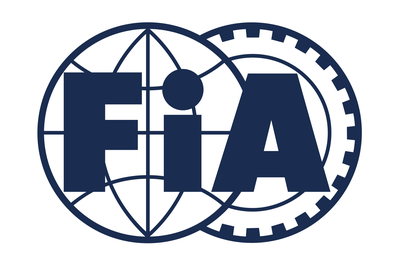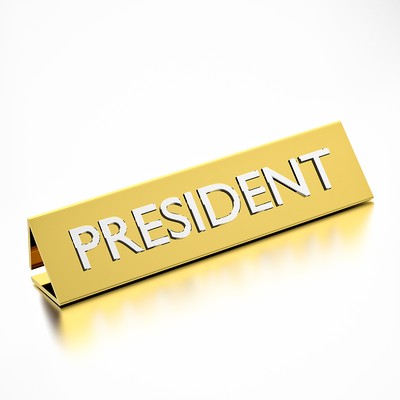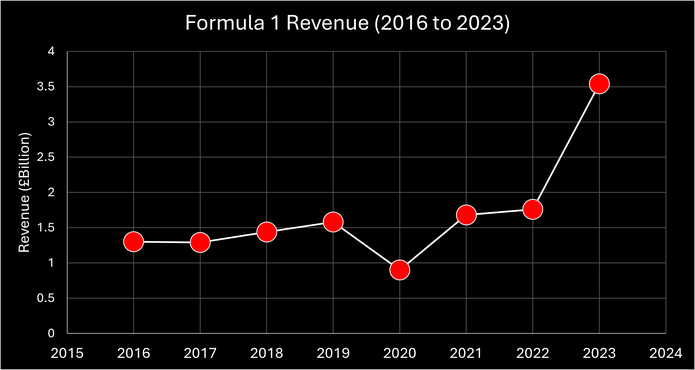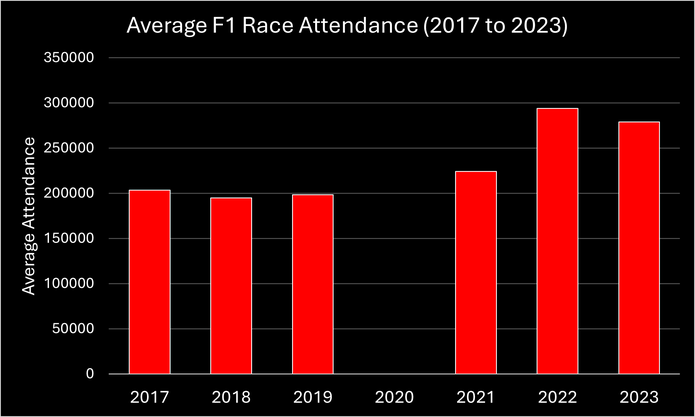 When a sport’s governing body has its integrity questioned, you just know that big trouble is around the corner.
When a sport’s governing body has its integrity questioned, you just know that big trouble is around the corner.
The Federation Internationale de l’Automobile (FIA) has been a major force in motor racing for more than a century, acting as the governing body for Formula One and other competitive racing concerns.
Its primary objective is to ‘represent the interests’ of the organisations it leads, but the FIA’s ability to do that for F1 is coming under increasing scrutiny following a series of scandals and controversies.
Bad Press

A whistleblower has come forward to claim that FIA president Mohammed Ben Sulayem directly interfered in the outcome of two Grand Prix races during the 2023 season. He was accused of asking for a penalty handed to Fernando Alonso at the Saudi Arabian GP to be overturned, before allegedly demanding F1 chiefs not to give the green light to the Las Vegas GP in November 2023.
In the end, Ben Sulayem was cleared of both charges – following an investigation carried out by….the FIA.
Susie Wolff, wife of Mercedes boss Toto, has also filed a criminal complaint against the FIA. The governing body had launched an investigation into the Wolffs over claims they were sharing confidential information with other F1 stakeholders – a claim that was disproved within 48 hours of the probe opening.
— Susie Wolff (@Susie_Wolff) March 20, 2024
Unsurprisingly, the Wolff family believe they have suffered reputational damage as a result of the FIA’s wrongful accusation.
An investigation into the private life of Red Bull boss Christian Horner has also been the source of controversy, with many suggesting that the FIA should launch an independent probe of their own after Red Bull cleared Horner of wrongdoing – even Ben Sulayem has described the unsavoury episode as ‘damaging’.
It will come as no shock to learn that the integrity of the FIA, and its function within F1, has come under scrutiny. Lewis Hamilton has spoken out against Ben Sulayem personally, revealing he ‘has never’ supported the governing body’s president.
“There is a real lack of accountability here, within this sport, within the FIA, things that are happening behind closed doors, there is no transparency, there is really no accountability,” Hamilton has claimed.
“How can you trust the sport and what is happening here if you don’t have that?”
The pressure is mounting on the FIA, so is it possible that they could be ousted from F1 and replaced by a new governing body?
What Does the FIA Do?

Although their remit is wide and extensive, the FIA has a main objective: to oversee the smooth running of F1 and various other motor racing entities, including the World Rally Championship, the World Endurance Championship and Formula E.
The FIA oversaw the inaugural Formula One season in 1950, and has continued as the sport’s main administrator ever since – although it has been embroiled in controversies throughout its time as F1’s governing body.
The European Commission accused the FIA of an abuse of power during the 1990s, claiming it that it used its position to hand out favourable deals to TV companies and promoters in an ‘anti competitive’ manner, as well as the alleged conflicts of interests affecting an organisation that also operates other motor racing events.
Although the investigation was closed in favour of the FIA, with the governing body cleared of any wrongdoing, they did agree to give up the commercial side of F1 – ensuring that they would act as a regulator only, rather than a money-making machine.
Max Mosley, the son of a former fascist leader, once appeared in court as part of a case in which he admitted to enjoying ‘unusual’ carnal acts, served three terms as FIA president – not exactly helping its image as a squeaky clean governing body.
More than once have the car manufacturing teams in F1 threatened to breakaway and set up their own championship, asserting control over the sport’s legislation and also ensuring they could negotiate their own commercial deals. The FIA has, until now, always been able to ward off any threat of a rival organisation, but it’s a concern that is rarely far away.
But is it fit for purpose as an independent body, whose sole responsibility is to ensure the efficient running of F1 and other sports? If the antics of Ben Sulayem are to be believed, there’s a line that has been crossed by the regulator.
Who is Mohammed Ben Sulayem?
 If the main responsibility of a regulatory body’s president is to ruffle as many feathers as possible, the FIA have chosen a humdinger in Mohammed Ben Sulayem.
If the main responsibility of a regulatory body’s president is to ruffle as many feathers as possible, the FIA have chosen a humdinger in Mohammed Ben Sulayem.
Straight out of the gate, when taking the job in November 2021, Ben Sulayem was accused of incompetence into how the FIA investigated the controversy at the Abu Dhabi Grand Prix – many within the sport claiming their inquiry resolved nothing and was merely a piecemeal attempt at satisfying all parties concerned.
Within months, the new president was banning the wearing of jewellery – thought to be a direct attempt to antagonise Lewis Hamilton, and introducing new rules that prevented drivers from wearing ‘non regulation’ underwear.
“It’s a contentious topic because you’re going commando if you’re not wearing your own,” revealed former Alpine driver Oscar Piastri.
Ben Sulayem continued to throw his weight around – at times, seemingly in defiance of the FIA itself. In June 2022, he gave an extraordinary interview in which he questioned why some of F1’s drivers were so outspoken on social and political issues.
“Niki Lauda and Alain Prost only cared about driving,” he said.
“Now, Vettel drives a rainbow bicycle, Lewis is passionate about human rights and Norris addresses mental health.”
You won’t be shocked to learn that did not go down with many of F1’s stakeholders.
By the winter of 2022, Ben Sulayem had ripped up the sport’s code of conduct – re-writing it so that drivers would be sanctioned if they spoke out with ‘political, religious and personal statements or comments.’ Perhaps he should have muzzled himself back in 2001, when he revealed that he does ‘not like women who think they are smarter than men, for they are not in truth.’
He later vetoed an increase in the number of sprint races held per season from three to six – he would subsequently make a U-turn, before deciding to publish the 2023 race calendar himself; without first telling F1 bosses, who are supposed to be in charge of releasing the details to drivers, teams and the media.
And then came the race day controversies. At the Saudi Arabian Grand Prix in 2023, an FIA compliance officer confirmed that a complaint had been made against Ben Sulayem, who it was alleged had lobbied stewards to overturn a time penalty issued against Fernando Alonso and Aston Martin, after they had broken pit lane rules.
BREAKING: Fernando Alonso’s third place in Jeddah is reinstated!#SaudiArabianGP #F1 pic.twitter.com/afmhn9rh3B
— Formula 1 (@F1) March 19, 2023
It has also been alleged that Ben Sulayem was against F1 launching its Las Vegas GP in 2023, going as far as to ask FIA chiefs not to certify the street circuit in the Nevada city – according to a whistleblower. It’s not known why the president was against the race being held.
All of the above has happened over a period of little more than three years, which helps to explain why Ben Sulayem as an individual, and the FIA as a collective, are viewed with so little respect by many with a connection to the sport.
His term as president will come to an end in December 2025, unless he chooses to stand for re-election. At which time, the FIA might be better served voting in somebody who can uphold the integrity of Formula One and rebuild trust between the governing body and its drivers and constructors.
Who Owns F1?

One of the curiosities of the sport of Formula One is that is actually owned and operated by a commercial enterprise – Liberty Media. There is a misconception that the FIA owns F1, but the regulator only has the power to operate the sport’s governance; from devising and enforcing the sportsbook to grading circuit and licensing drivers. It also owns the rights to the Formula One championship, the intellectual property of F1 and the name itself.
Liberty Media paid £3.3 billion for the keys to the sport in 2016, with their remit to enhance the promotion and financial viability of the commercial side of F1 – which they’ve done by harnessing the power of new content platforms, with the Netflix series Drive to Survive proving particularly popular.
While the FIA make the rules by which F1 must abide, Liberty Media has the autonomy to grow the sport globally in any fashion it sees fit – a separation that has caused conflict between the two groups in the past.
Is it dangerous for a sport to be seen as a commercial entity, designed to make as much money for shareholders as possible? Perhaps, and there have been instances where Liberty have been accused of putting the demands of shareholders ahead of the needs of the sport.
That being said, the general consensus is that Liberty is doing a good job of making Formula One bigger and better, while appealing to new audiences. Their insistence on adding a Las Vegas Grand Prix to the schedule has been considered a great success, with more than 300,000 people attending media events, qualifying and the race itself – at a cost of around $500 million.
The firm has helped to establish F1 as a rival to NASCAR in the United States in terms of popularity, while the return of the Chinese Grand Prix – and with plans to return to India – confirming Liberty’s desire for global domination of competitive motorsports.
The financial bottom line looks good, too. Ironically, the first F1 season with Liberty at the helm was a disaster – they reversed a 5% increase in profitability from 2016 to a 1% loss a year later, but after getting their feet under the table, the sport is now making more revenue than ever.

There was a drop in 2020, of course, due to the global health crisis, which saw the schedule trimmed from 22 to 17 races and fans largely prohibited from attending the action in person.
Otherwise, it’s been year-on-year gains for F1 since Liberty Media took over, including that extraordinary rise in 2023 which saw the annual revenue of Formula One double in size.
Another of Liberty’s key battles is to put more eyes on the F1 ‘product’. They’ve enjoyed success in that area too, with TV viewing figures on the rise ever since they took charge in 2016.
Actual race weekend attendances have consistently risen too, barely scraping 200,000 (on average) during the 2017 season before hitting all-time highs of nearly 300,000 in 2022.

The challenge for Liberty is to now win over new fans who are sceptical about a sport that has been dominated by one team – and one driver – for so long. From the start of the 2022 season to the culmination of the 2023 campaign, Max Verstappen had won 34 of the 44 races held.
How can you sell a sporting product when fans know who is going to win before the action has even begun?
That’s the tough task facing Liberty, who saw both TV and race weekend attendances fall in 2023 amidst the dominance of Verstappen and Red Bull. Ironically, they might need the help of the FIA to come up with rule changes that prevent one team from enjoying such a monopoly over the sport year in, year out.
Could F1 Break Away from the FIA?
 Can’t live with them, can’t live without them – that’s the uneasy truce that keeps F1 and the FIA together.
Can’t live with them, can’t live without them – that’s the uneasy truce that keeps F1 and the FIA together.
The FIA owns the right to the Formula One name and its World Championship, effectively meaning that if the F1 were to break away from the governing body, they would need to create an entirely new identity – possibly at the risk of losing fans and visibility, should the FIA launch its own competition using the Formula One branding.
Back in 2010, the FIA and some of the construction teams in F1 had an almighty fall-out over proposed budget caps that the regulator wanted to bring in. The disgruntled manufacturers got together and formed FOTA – the Formula One Teams Association.
FOTA had big ambitions: they planned to form a breakaway series from F1, taking their cars and their drivers with them. They couldn’t use the Formula One branding, of course, and so they came up with a new name for their proposed competition – the Grand Prix World Championship.
In the end, the FIA and representatives of FOTA came to a collective agreement, and the disastrous end to F1 as we know it was called off.
One of the things that kept Formula One together in the past was that Mosley, the former FIA president, and Bernie Ecclestone, the owner of the commercial side of the sport at the time, were friends – therefore, they always found a way to resolve any disagreements.
But with Muhammed Ben Sulayem proving to be such a divisive figure, it remains to be seen whether there’s enough goodwill on either side to shake hands on a resolution IF a new breakaway idea was to be floated – as it was at the tailend of 2023, when the FIA upped its investigation into Mercedes over the Wolff allegations.
For any offshoot from the FIA’s command to be successful, a significant amount of money would need to be pumped into the new entity – not only to facilitate a global calendar, but also to pump into advertising and marketing….remember, any new entity would not be allowed to use the Formula One branding, which would be a very difficult hurdle to overcome without the aid of a big marketing budget.
Liberty Media, you suspect, have the knowhow and the resources to make such a breakaway happen, and you sense there wouldn’t be a shortage of suitors looking to come in and sponsor races and the competition as a whole.
With the revenues and attendance figures looking so healthy, you could argue that Formula One – in association with Liberty Media – has never wielded more power over the FIA than they do right now. It’s an existential threat that may yet prompt the regulator to up their game….or essentially face extinction if their main sport chooses to no longer be regulated by them.